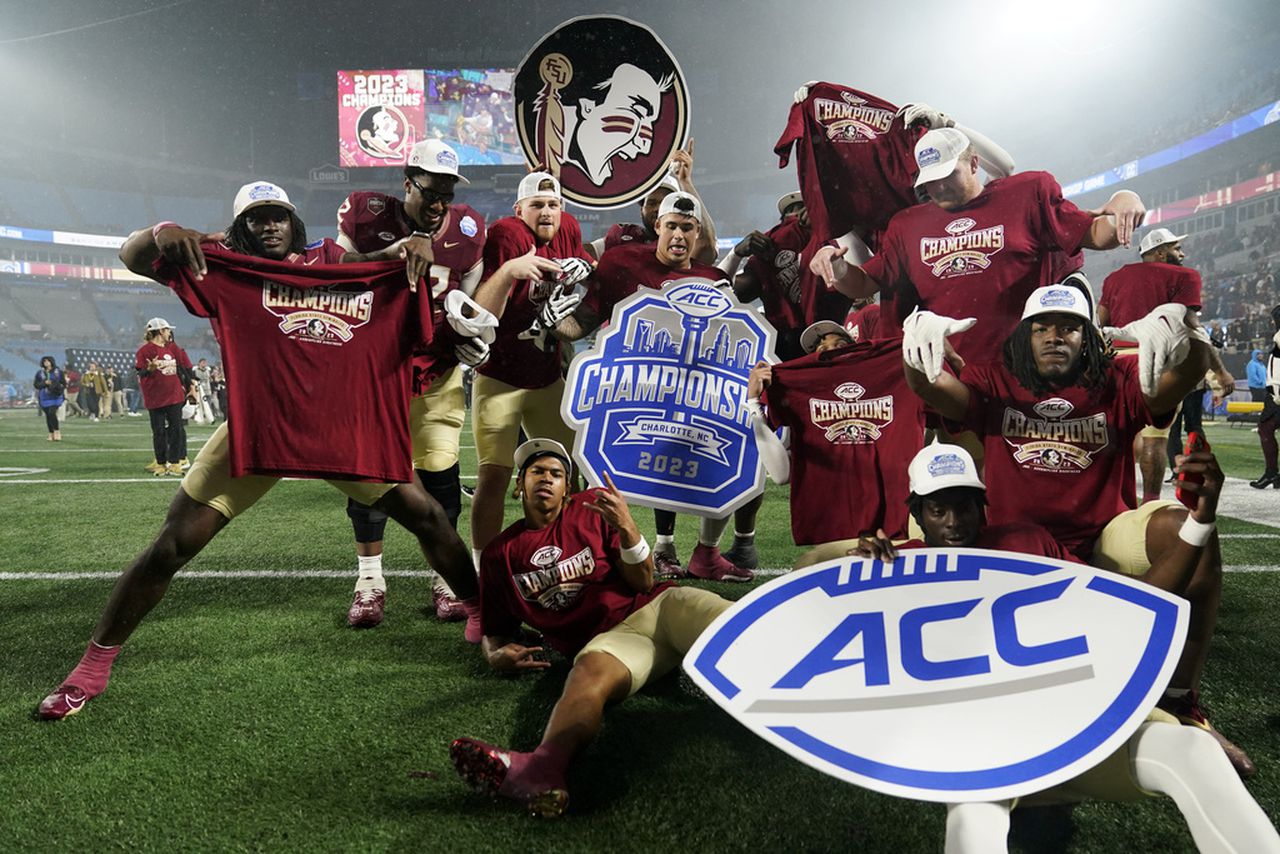Florida State files lawsuit vs. ACC over $572M exit fee
Florida State’s board of trustees has filed a legal challenge to the ACC’s attempts to make it pay with it called a “draconian” exit fee of $572 million if it chooses to leave the conference.
The suit was filed Friday in circuit court in Leon County, Fla., which contains Tallahassee and FSU. In the 38-page complaint, FSU alleges that “failures by the ACC to fulfill its most fundamental commitments to Florida State and its members” resulted in the Seminoles being left out of the College Football Playoff despite a 13-0 record and conference championship.
The ACC’s grant of rights broadcasting contract with ESPN runs through 2027, with an option to extend it 2036. Under terms of the deal, should FSU or any other school choose to leave the conference in that time, they would either be unable to transfer their broadcast rights to another conference’s TV deal or pay hundreds of millions of dollars in exit fees.
“Through chronic fiduciary mismanagement and bad faith, the ACC has persistently undermined its members’ revenue opportunities including by locking them into a deteriorating media rights agreement that will soon result in a vast annual financial gap between the ACC and other Power Five (soon to be Power Four) conferences,” the suit reads in part. “Those failures have, by design, coalesced with the ACC’s efforts to effectively deprive ACC members of their fundamental right to withdraw, through the combination of an unconscionable Grant of Rights provision and a prohibitive Withdrawal Penalty that are unparalleled in the history of intercollegiate athletics.”
Florida State has been making rumblings about leaving the ACC for several months, ever since the Pac-12 dissolved late last summer. Several members of that conference left for the Big 12 and Big Ten, while two others — Cal and Stanford, along with SMU of the American Athletic Conference — agreed to join the ACC.
ACC commissioner Jim Phillips released his own statement Friday, calling Florida State’s challenge to the league’s grant of rights and exit fee “a clear violation of their legal commitments to the other members of the Conference.” Here’s Phillips’ complete statement:
“Florida State’s decision to file action against the Conference is in direct conflict with their longstanding obligations and is a clear violation of their legal commitments to the other members of the Conference. All ACC members, including Florida State, willingly and knowingly re-signed the current Grant of Rights in 2016, which is wholly enforceable and binding through 2036. Each university has benefited from this agreement, receiving millions of dollars in revenue and neither Florida State nor any other institution, has ever challenged its legitimacy.
“As a league, we are proud of the successes of our student-athletes and that the ACC has won the most NCAA National Championships over the past two and half years while also achieving the highest graduation success and academic performance rates among all FBS conferences, so it is especially disappointing that FSU would choose to pursue this unprecedented and overreaching approach.
“We are confident that the Grant of Rights, which has been honored by all other universities who signed similar agreements, will be affirmed by the courts and the Conference’s legal counsel will vigorously enforce the agreement in the best interests of the ACC’s current and incoming members.”
Florida State has been a member of the ACC since 1991, when it joined the league after playing as an independent in football for more than 30 years. The Seminoles turned down an opportunity around that time to join the SEC, which instead added Arkansas and South Carolina, and has since expanded with Texas A&M and Missouri in 2012 and will become a 16-team league when Texas and Oklahoma join next fall.
Florida State was among three unbeaten Power 5 teams after conference championship weekend, but was passed for one-loss Texas and one-loss Alabama for the four-team playoff, with committee members citing the Seminoles’ injuries at quarterback. FSU instead will play Georgia in the Orange Bowl on Dec. 30.
